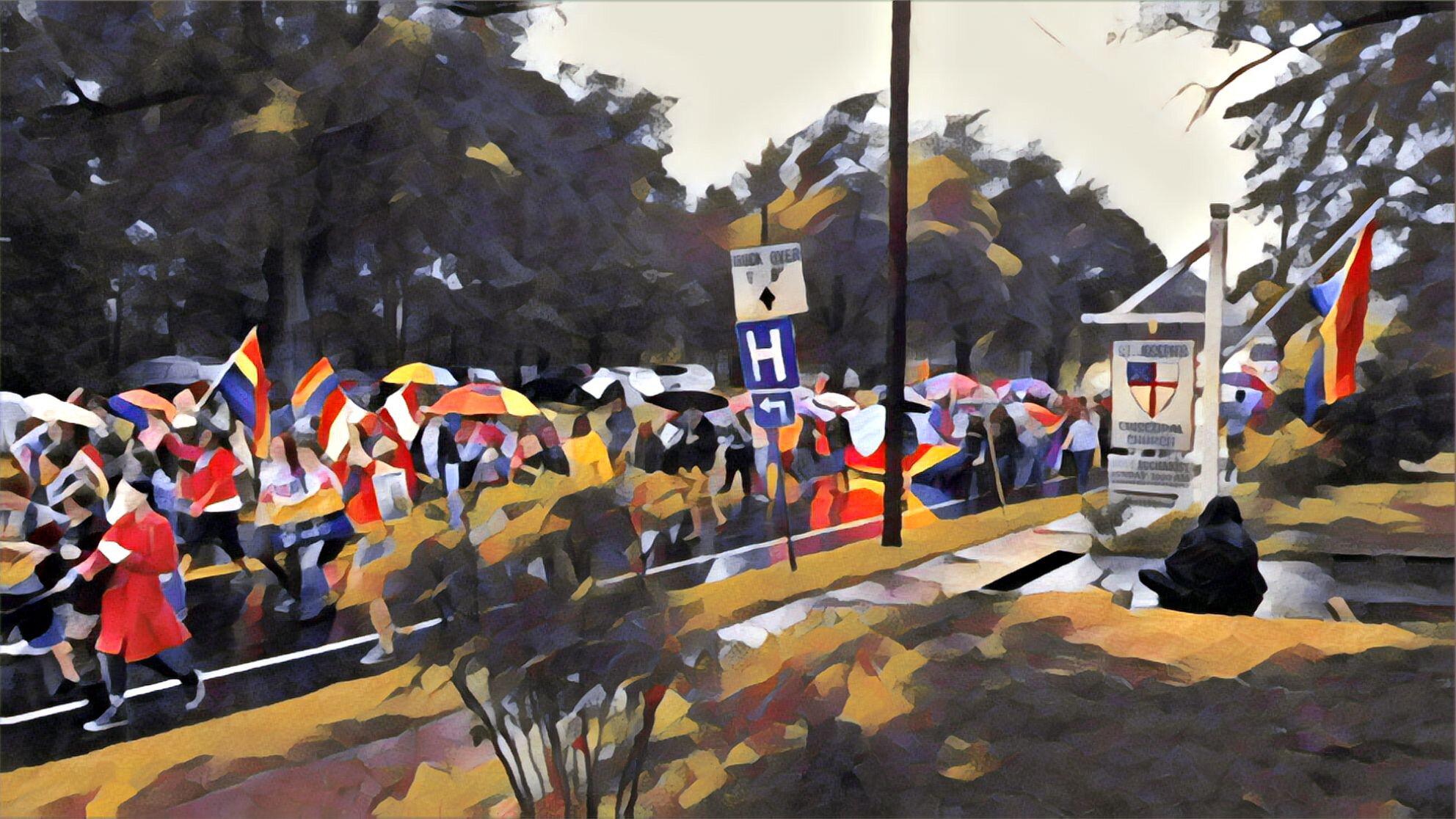
We love Durham.
We partner with our neighbors in a number of annual events for the good of the city.
We are delighted to be partnering with Durham Community Fridges to help redistribute good in our neighborhood. The fridge, on the Iredell side of the church, opened in fall 2022 to provide fresh produce and staple goods for anyone to take and use.
This fridge, the first in Durham, is part of an international movement to share surplus food donated by local businesses to stop food from winding up in the trash. Over three months, one community fridge can redistribute 12 tones of food waste and save households and community groups over $10,000 in food costs.
Community fridges are also known as “solidarity fridges” and “honesty fridges” that operate on the honor system and as part of a mutual aid network.
Our local partner, Durham Community Fridges (DCF) is a mutual aid project founded in 2022 that supports equal access to fresh food, helping individuals and communities address food insecurity while bringing people together. DCF works alongside our neighbors to build and strenghen community, disrupt unjust good systems, and redirect the flow of food from landfills to people.
Volunteers from DCF check the fridge daily to make sure it is clean and stocked with fresh food. Acceptable donations include fresh produce, beverages, grab-and-go items, bread, eggs, canned goods, pet food, to-go ware and personal care items. To sign up to volunteer, please please submit this interest form. To learn more, follow the project on DCF’s Instagram account, @durhamcommunityfridges and read Indy Week’s article, “At This Community Fridge, the Door Is Open for Everyone.”
Durham CAN
Durham Congregations Associations and Neighborhoods (CAN) is a broad-based organization that works to coalesce, train, and organize the communities of Durham across religious, racial, ethnic, class, and neighborhood lines for the public good. CAN’s primary goal is to develop local leadership and organized power to improve the conditions of low and moderate income families.
Durham CAN’s current focus on affordable housing, poverty, gun violence and public transportation dovetails with St. Joseph’s direct response to hunger and homelessness in the Ninth Street area of Durham. As a new member organization, St. Joseph’s is focusing on one-on-one relational meetings within our congregation.
https://www.durhamcan.org/
Contact: Doug Merrill, dougmerrill(at)hotmail.com
Durham Episcopal Resettlement Coalition
In 2021, Durham Episcopal Resettlement Coalition was formed in partnership with World Relief Durham, who were providing temporary housing for refugee families and connecting them with long-term services and other local volunteers. DERC and WRD determined the best approach would be to focus DERC’s efforts on being the welcome team for refugee families’ initial arrival at RDU and first day in a new country. DERC’s welcome team of eleven is the only refugee welcome team in the Triangle. It includes members from St. Luke’s, St. Titus’, St. Joseph’s, and St. Stephen’s. Two to four DERC members go to the airport to welcome the family and drive them to their new home.
Meanwhile other DERC volunteers purchase culturally appropriate groceries, prepare a welcome meal for the family and provide donated toys, clothing, and other items as needed. WRD sends interpreters along with the welcome team. The DERC team also orients the family to the features of the apartment and passes along any important information the family’s WRD caseworker needs to know. WRD’s initial resettlement team provides core services for the family during the federally-mandated initial resettlement period (up to 90 days), and other WRD teams provide support with employment, health and wellness, and education. DERC has welcomed families from Syria, the Democratic Republic of the Congo, Myanmar, Central African Republic and Colombia, as well as Afghanistan. Aside from the struggles families faced in displacement, international travel to the Triangle can be a further hurdle as airlines have occasionally lost families’ luggage in transit.
Financial support from DERC’s member churches (which is held at St. Luke’s) makes the groceries and other welcome purchases possible. It also indirectly frees up WRD resources for long-term program offerings. Continued and expanded support, both financial and in-kind donations, would enhance that larger mission. Gift-in-kind donations and volunteer hours show our funders that the Durham community is committed to the long- term success of refugee families.
For more information about volunteering with DERC or providing in-kind or financial gifts, contact Margy Pikaart - margaret.pikaart(at)icloud.com or Ed Pikaart - Edpikaart(at)gmail.com
Johnson Service Corps is a 10.5 month Episcopal Service Corps program. Each year JSC brings together young adults, ages 21 to 28, for an immersive experience of justice ministry and spiritual practice in Durham, NC. JSC Fellows live together in beloved community, serve nonprofits in the Triangle, and whole-heartedly engage spiritual and personal growth. JSC is a vibrant, intensive young adult ministry program, supported by the Episcopal Diocese of NC and local Episcopal congregations.
“Like the bow in a cloud on a rainy day, such was the appearance of the splendor all around. This was the appearance of the likeness of the glory of the Lord.” --Ezekiel 1:28






